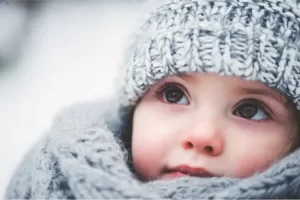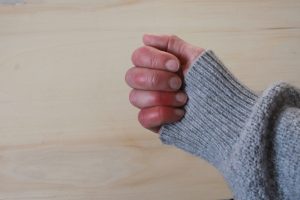Painful fingers? It could be Chilblains
Medically Reviewed by Dr Davinder Nagah
Last updated on 17.07.2025
What are Chilblains?
- Chilblains are caused by repeated exposure to cold air, leading to inflammation of the small blood vessels in the skin.
- Symptoms of Chilblains include itch, swelling, pain, redness and occasionally blistering of the fingers or toes.
- The condition is sometimes also called “pernio” or “perniosis”.
How long do Chilblains last?
- Chilblains usually get better within one to three weeks, or if the weather gets warmer.
- Some people may get them on a yearly basis, or repeatedly if they don’t avoid the triggers.
What causes Chilblains?
- It is not entirely clear what causes Chilblains.
- They may be due to the way some people react to becoming cold, followed by warming up again.
- When cold skin of the fingers and toes warms up again, small blood vessels beneath the skin may expand more quickly than other larger blood vessels. This possibly results in a build-up of blood, which may leak into the surrounding tissues, leading to inflammation.
Who gets Chilblains?
Certain risk factors make it more likely that a person will get Chilblains:
- Women are more likely to get Chilblains than men
- Being underweight
- Poor circulation
- Wearing unsuitable clothes in cold weather- whether too tight, not warm enough, or ill-fitting
- Raynaud’s Disease
- Autoimmune conditions such as Lupus
Are Chilblains serious?
Usually, Chilblains are not serious. However, occasionally blisters and ulcers may form on the fingers or toes. If these become infected, antibiotic treatment may be needed. So, it is important to see a doctor if you have bad Chilblains, particularly if the skin starts to break down, if your symptoms don’t start to improve after a couple of weeks, or if you think you might have frostbite from sub-zero temperatures.
Are Chilblains the same as frostbite?
No, whilst both caused by exposure to cold, frostbite and chilblains are two different conditions. Frostbite is caused by exposure to “freezing cold” and is more serious, leading to permanent damage, discoloration and death of tissue (necrosis).
How do you prevent Chilblains?
- Stay warm and dry
- Wear appropriate layers of warm clothing during cold weather, including gloves, warm socks and good footwear.
- Avoid exposing your skin when outdoors in cold weather
- If you do get cold, rewarm yourself gradually (for example, do not place cold hands directly against a warm heater or other heat source)
- Keep your home and workplace warm.
- Avoid smoking as it is bad for your circulation
Is there any other treatment for Chilblains?
- A doctor may prescribe medication if you have severe Chilblains. Medications more commonly used as a blood pressure treatment can sometimes help with the symptoms of Chilblains.
- Topical steroid creams or ointments may sometimes be used
- If infection occurs (if the skin ulcerates or breaks down), antibiotics may be needed
If you think you may have Chilblains, speak to your doctor.
Article Resources & Patient Information

Getting a Mental Health Care Plan in Australia: Your Guide
Getting a Mental Health Care Plan in Australia: Your Guide Mental health matters—and if you’re feeling overwhelmed, anxious, or down, a mental health care plan can help. But what is it, and how do [...]
UTI Symptoms and Treatment: What You Need to Know
UTI Symptoms and Treatment: What You Need to Know Urinary Tract Infections (UTIs) are common, uncomfortable, and often disruptive. But what exactly are the signs to watch for, and how can you get relief [...]
Free Mental Health Care Plan Online | Bulk-Billed by Qoctor
Free Mental Health Care Plan Online | Bulk-Billed by Qoctor Discover how to get a free, bulk-billed Mental Health Care Plan (MHCP) in Australia through Qoctor's telehealth service. Accessing [...]





